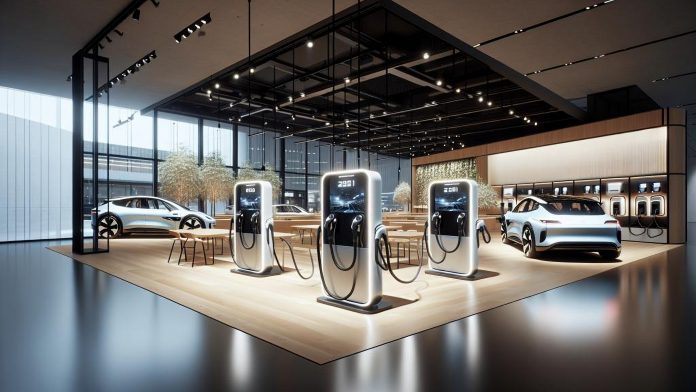On Wednesday, the U.S. Treasury Department proposed a new rule that could provide substantial tax credits for installing electric vehicle (EV) chargers. Under the proposal, individuals would be eligible for credits of up to $1,000, while businesses could receive up to $100,000 for each installed charger. This rule aims to accelerate EV infrastructure, with businesses poised to benefit significantly by installing multiple chargers, offsetting considerable costs.
John Podesta, White House senior adviser for international climate policy, emphasized the importance of expanding charging access. “To help more Americans go electric, we need to ensure they can charge their EVs where they live, work, and shop — from inner-city neighborhoods to rural areas,” Podesta said. This initiative builds on the 2022 Inflation Reduction Act, which aims to reduce the cost of EV charger installation by up to 30% for families and businesses.
The proposed rule follows earlier guidance from January that made tax credits for EV chargers available in about two-thirds of the U.S., targeting low-income and non-urban areas. This latest proposal takes a broader approach, allowing credits to apply to individual charging ports rather than limiting them to a single credit per multi-port installation. This shift is expected to make it easier for businesses and individuals to install chargers and contribute to the expansion of EV infrastructure.
Advocates, including Katherine García from the Sierra Club’s Clean Transportation for All program, have expressed support for the new proposal. García believes that the incentive will ensure that Americans can benefit from the electric vehicle provisions of the 2022 climate law, while also boosting job creation, reducing pollution, and supporting the nation’s climate goals.
Congress has already committed $7.5 billion under the 2021 bipartisan infrastructure law to help President Biden’s goal of building a national network of 500,000 publicly available EV chargers by 2030. As of August 2024, over 192,000 public charging ports are available nationwide, more than doubling since Biden took office. This network is crucial to the Biden-Harris administration’s efforts to transition the U.S. from gasoline-powered vehicles contributing to global warming.
The tax credits are expected to be particularly beneficial for communities located near warehouses, where gas-powered delivery trucks frequently contribute to toxic pollution. The incentive encourages warehouse owners to install EV chargers, helping electrify thousands of commercial delivery trucks across the U.S. Albert Gore, executive director of the Zero Emission Transportation Association, stressed the convenience of EV ownership, as drivers can charge their vehicles while parked, integrating charging into daily routines.
The tax credit, referred to as “30C” in the U.S. tax code, is designed to promote EV infrastructure investment at homes, businesses, and retail locations. Treasury and the IRS will accept public comments on the proposed rule until mid-November, with a potential public hearing to follow. However, the Treasury Department has not indicated when the rule may be finalized.



